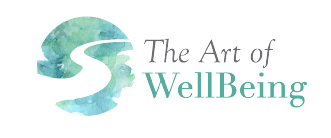Longing for Less
While glancing at headlines, I saw this:
“Mark Cuban is urging Americans to stock up on essentials—everything from toothpaste to soap—before prices rise even more. ‘It’s not a bad idea to go to the local Walmart or big box retailer and buy lots of consumables now.’”
My first thought was: “I can do that.” After all, I’m a frugal shopper—trained from a young age by my mother to compare prices and hunt for bargains.
My second thought was: This is not fair. I have the means to stock up, while those who most need to avoid the price increases may not have the ability to buy “lots of consumables” all at once.
Then came a third thought, quieter but more persistent:
What better time to reflect on what I’m using that I may not really need?
Instead of spending time and money stocking up, maybe this is an opportunity to consider what it means to consume less.
That’s when I remembered a book by my good friend and colleague, Paul Escamilla, titled Longing for Enough in a Culture of More.
Escamilla writes, “The voice of ‘more’ is loud and persuasive… yet the whisper of ‘enough’ can be more powerful when we learn how to listen.”
That whisper was nudging me. What if stocking up wasn’t just about preparing for economic uncertainty—but also about examining the inner unrest that tells me I never have enough?
Throughout his book, Escamilla explores the idea that our longing for more is often a spiritual hunger in disguise—a deeper yearning for connection, simplicity, and meaning.
“When our souls are cluttered with too much, we miss the quiet clarity of grace,” he writes.
So I had to ask: Was my impulse to stock up really about security—or just another attempt to soothe discomfort with consumption?
He invites us into a “theology of enough”—a trust that God's provision is sufficient, and that a simpler life can be a more generous one.
“Enough,” Escamilla insists, “is not a number. It’s a posture.”
So instead of filling a cart with toothpaste and soap, I’m starting with a different kind of inventory:
Where in my life do I already have more than enough?
What can I release to make room for peace, presence, and compassion?
It’s a very Lenten invitation on this week before Holy Week.
Because sometimes the most radical response to a culture of more is simply to long for less.
Walking with you,
Vicki
